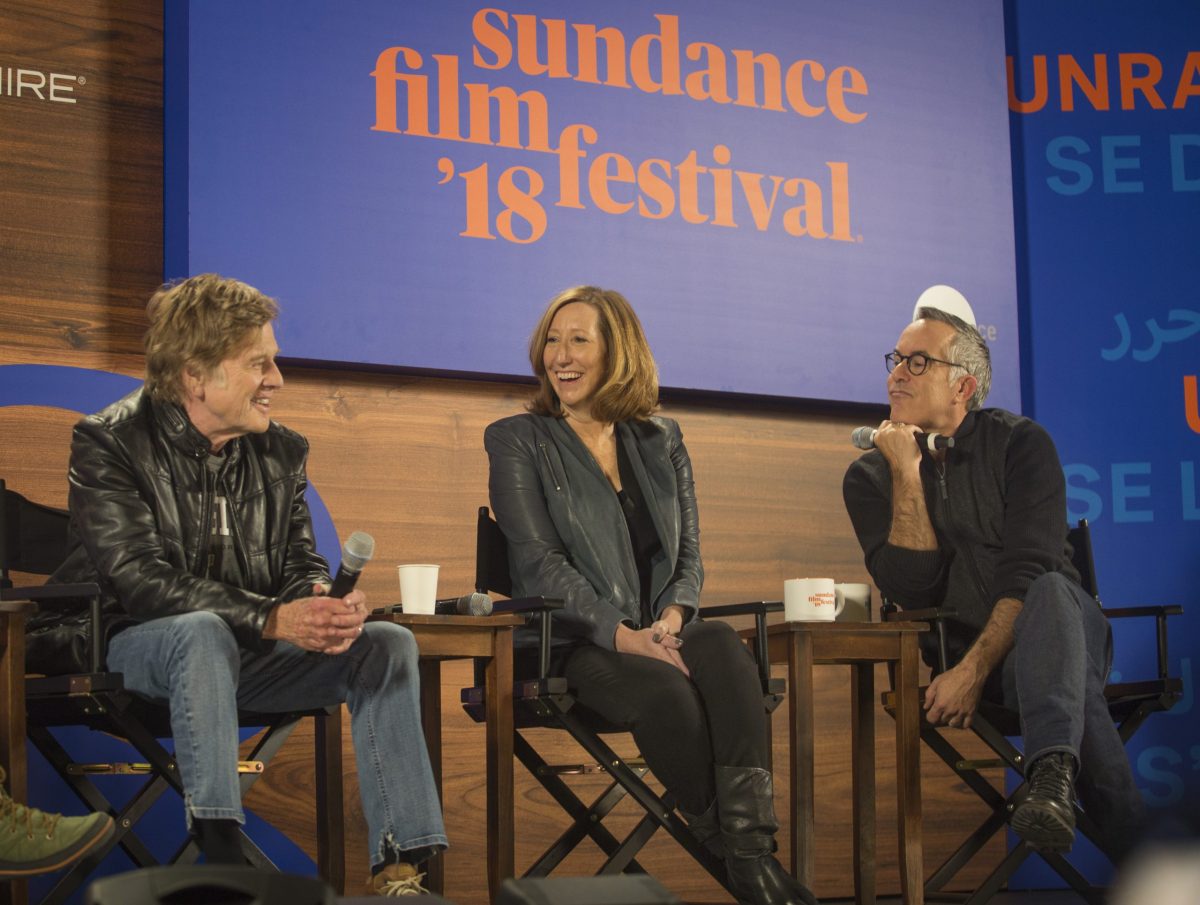The Sundance Film Festival stands behind the #metoo and #timesup movements.
Sundance Institute founder Robert Redford, executive director Keri Putnam and John Cooper, director of the Sundance Film Festival, united their voices when they praised the conversations the social media hashtags have created in the wake of sexual misconduct allegations in Hollywood and other industries.
“I’m pretty encouraged now,” Redford said during the 35th Sundance Film Festival’s opening-day press conference, held Thursday at the Egyptian Theatre. “What this period of change is doing is bringing more opportunity for women in film to have their own voices heard and do their own project. Change is producing a tipping point and changing the order of things so women can have a stronger voice that they didn’t have before.”
Redford said the new role for men is to pay attention.
“I think the role for men right now would be to listen and think about it and discuss it,” he said. “This can lead to a new conversation. At least I’m hopeful.”
Putnam thanked Redford and agreed.
“I think it’s more than individual men,” she said. “I think it’s about the underlying power.”
That power, Putnam said, continues into the structures and assumptions that are made in the filmmaking process.
“Who do we value?” she asked. “Who gets financing? Who gets distribution? Who gets to tell the stories? And what stories will they get to tell?”
Putnam said the Sundance Institute works with many underrepresented storytellers, who include many women, and has seen a shift in the atmosphere.
“What I’ve noticed in the wake of the movements is a different energy happening,” she said. “This isn’t a new conversation for us, but it’s a new moment. And we’re not going to go backwards from there.”
This year’s festival numbers back Putnam up.
Sundance will screen 45 features by women filmmakers, along with 35 shorts, according to a press release.
In addition, the press release stated that 42 percent of all of the festival’s short and feature films were directed by women filmmakers and 32 percent films were directed by people of color.
Putnam also said creating change in a complex system such as the film and media industry will take time and effort.
“It will take a lot of pressure and conversations,” she said. “When you’re talking about representing the totality of people in the media, you’re talking about what we value as a society. Who do you imagine yourself to be? What do you see on your screen? Do you see yourself represented?”
Cooper said many of those discussions will start at this year’s festival, and organizers are taking steps to further those conversations.
“We’re at ground zero … and we had to take it one step further to make ourselves feel better and everybody here,” he said.
To do that, organizers created a code of conduct for the whole festival.
“We have had a code of conduct for our staff and volunteers for years, but it had to go bigger this year,” Cooper said.
Part of that code is the installation of a 24-hour hotline that was implemented by the festival’s managing director, Betsy Wallace, in a partnership with Park City law enforcement and the Utah Attorney General’s Office, Putnam said.
“There is a 24-hour hotline that festival attendees can call while they are at the festival if there is an incident or if they want to report something,” Putnam said. “I think it’s a step we wanted to take to ensure the safety of our guests.”
While the Sundance officials answered questions from the media, the discussion led to the core of the #metoo movement, which started with allegations of sexual harassment and assault by film producer Harvey Weinstein.
“I think Harvey Weinstein was a moment in time and we’re going to move past that,” Redford said. “When we had people who came to the festival like Harvey, they came to the festival with one thing in mind. They looked at what they could cherry-pick for their own use. The festival will go on, (because) our purpose was to make sure that the festival is making sure to show the work of the artist.”
Redford also addressed the issue of “fake news.”
“Journalism always seems to be under threat,” he said. “(It’s) because journalism is our means of getting to the truth (and) getting to the truth is harder and harder in this climate.”
The press conference was moderated by Barbara Chai, MarketWatch entertainment editor and head of the arts and culture coverage for Dow Jones Media Group.
The Sundance Film Festival will run through Sunday, Jan. 28. For information, visit www.sundance.org/festivals.

